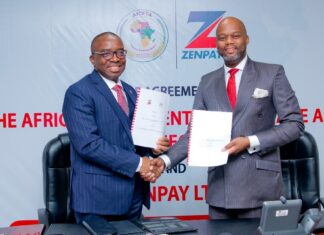Permit me to remind you of a story you may already be familiar with. It is the story of two conventions: the historical Constitutional Convention (or Philadelphia 1787) and the National Conference (or Abuja 2014).
In 1786, the American people, still glowing in their political independence, woke up to the realisation that the Articles of Confederation, a document that spelt out “the foundation for their new United States” adopted in 1777, required substantial modification.
Such modification included attempts to untangle the Continental Congress from the claws of the Articles. Under it, Congress could neither regulate domestic affairs nor generate its own resources. Congress depended on the existing 13 states that made up the United States of America (U.S.A.) for financial sustenance. Most times, such funding was late in coming.
There was unease in the land; with the economic war between the northern and southern states, or what could be termed ‘resource control’ in the Nigerian parlance. Things were so bad that in February 1787, the Continental Congress could stand the socio-economic onslaught no more. It called for a national conference or a convention of delegates “to device such further provisions as shall appear to them necessary to render the Constitution of the Federal Government adequate to the exigencies of the nation”.
The Convention, scheduled to start on May 18, 1787 could not take off until May 25. After delegates had assembled in the Independence Hall of the Pennsylvania State of Philadelphia, the Convention kicked off with the election of George Washington as its president.
Pan to May 17, 2014 when President Goodluck Jonathan inaugurated the national conference or confab. It was a follow-up to the Report of the Presidential Advisory Committee set up in October 2013. The committee had submitted its report in December.
The principal assignment of the committee was to design the framework and modalities for a productive confab that would meet the yearnings and aspirations of the people. There is no doubt that Jonathan was merely setting out to satisfy the age-long desires of the Nigerian people.
Nigerians had always wanted an opportunity to talk about Nigeria. The focus of the confab was for Nigerians to engage in intense introspection about the political and socio-economic challenges confronting the country. They were expected to chart the best and most acceptable way forward for the resolution of such challenges in the collective interest of all constituent parts of the federation.
Just like the American Congress decided in 1786, Jonathan said it was unrealistic for the administration to fold its arms and assume that things would straighten themselves out in due course. He announced that Nigeria was instead taking practical steps to overcome impediments on its path to true nationhood, rapid development and national prosperity.
There seems to be a thread of commonality of purpose connecting America’s 1787 convention and Nigeria’s 2014 confab. At the same time, they are miles apart in certain respects.
The Philadelphia Convention was a product of agitation for the need to harmonise certain institutional differences in the American socio-political and economic systems. The people needed a legal structure that would enhance regulation of affairs by the Congress and settle the economic war between the north and the south.
At the end, the Convention produced a new constitution for the country, created the institution called the Senate, and made several other landmark decisions that have made the American nation the greatest geo-political structure on earth.
These achievements were not easily put together. Argument upon argument, debate upon debate, threats upon threats arose in the midst of the Convention. In more times than could be counted, most of the delegates, including Washington, thought the Convention would end prematurely and push the new nation back into political slavery.
Big and small states, slave owners and anti-slave activists, the federalists and anti-federalists, all fought for supremacy. At the end, wisdom prevailed, superior argument took the centre stage, patriotism overwhelmed the crushing feelings of partisanship, and the country moved forward. Next week, we will look at the Great Compromise as the route that led to the peaceful resolution of issues.
Back in Abuja, the confab has technically come to a close. Delegates are expected to return on August 4 for the ratification of the final report of the conference. The agenda for the confab, as observed from close range, were vigorously pursued by the delegates.
If the Philadelphia Convention of 1787 attracted heated arguments that threatened its peaceful conduct, Nigeria’s version was even more violent; not in the sense of blows being exchanged, but in terms of many unprintable secret thoughts escaping from not a few lips.
From the dust raised by issues of religion and social sector, to the storms that arose from critical issues of national security, politics and governance, and political restructuring and forms of government, it was clear that when matters concerning devolution of powers would be discussed, blood may spill. It almost did.
The confab, without any doubt, has produced certain decisions that many Nigerians thought would never ever be agreed upon between the Northern and the Southern delegates.
Next week, we will examine what happened in 1787 that did or did not happen in 2014 and how the Auwalu Yadudus and Annkio Briggs would have been called to order.












